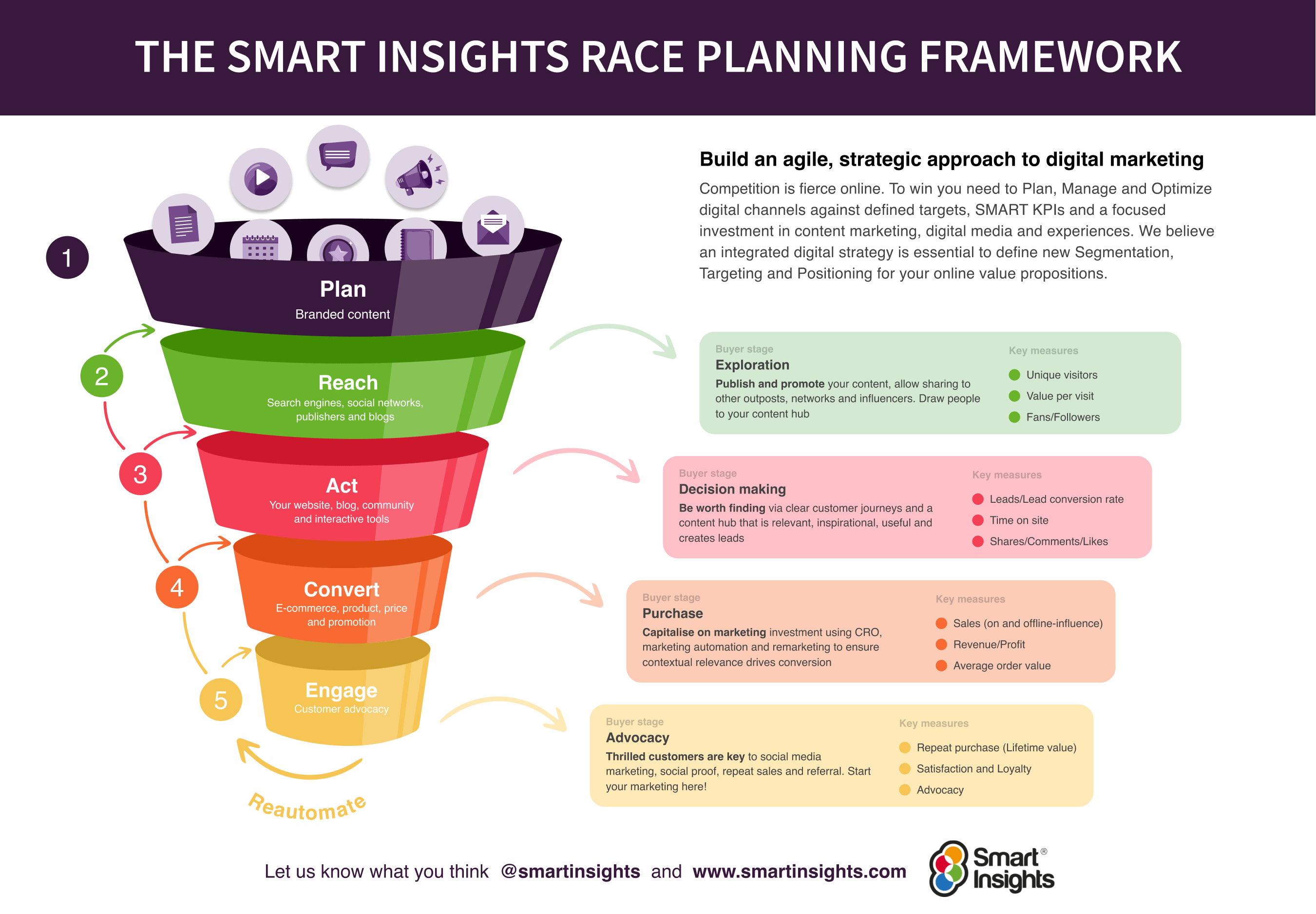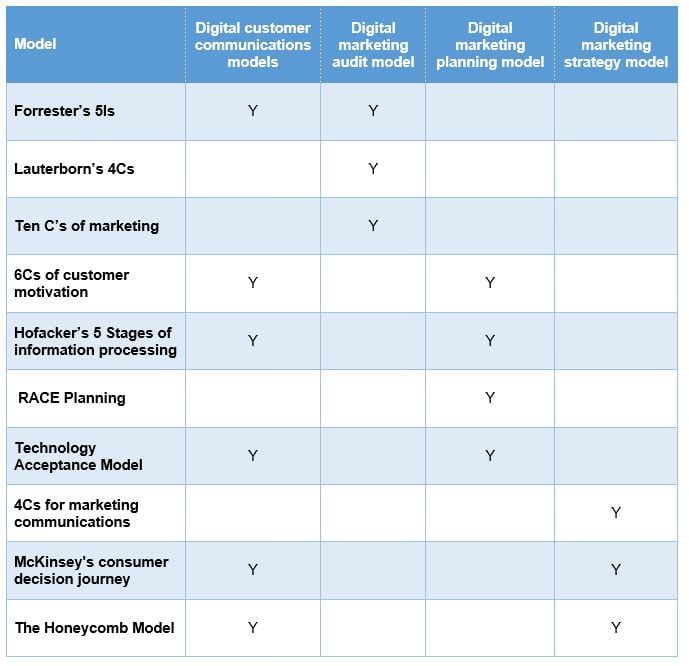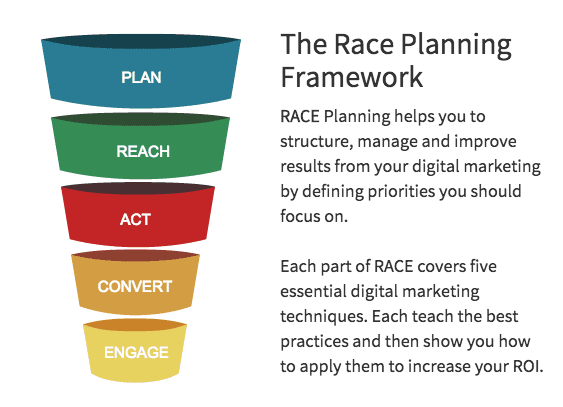Digital marketing models to provide useful frameworks for digital audits, planning and strategy
If you are a marketing manager needing to create a digital marketing plan or conduct an audit or review online communications, models provide a helpful flow as to what to include and to ensure nothing is missed.
Previously, in 2013, we created a free guide to support students using models in their assignments or when creating plans - Essential Marketing Models. Based on feedback from studying professionals and their lecturers, we thought it would be useful to have a specific guide to Digital Marketing Models.
Download premium member resource – Digital Marketing Models Guide
This guide lists 10 classic models that can be used by marketing professionals and students for digital audits, planning and strategy.
Access the Digital marketing models guide
Smart Insights Free Members can also download an editable digital marketing plan template featuring our popular RACE Growth System, a simple structure to put your plans into place using our Opportunity > Strategy > Action model to identify marketing activities for growth at each stage of the funnel.

In considering what to include we explored digital audit tools, digital planning frameworks as well as digital strategy models. We arrived at a list of ten, although we think we will add to this – hopefully based on your feedback!

Some of the classic digital marketing models like Hofacker’s 5 stages of information processing are a little dated, but still relevant. Others like the Technology Acceptance Model are longer established and popular with PhD researchers (which is how I came across this). Others such as the research-based Honeycomb model are newer and was created by a group of professors to unravel social media platforms.
Let’s look at each digital marketing model. Our Digital Marketing Models guide provides more details and explains how you can use it, with examples and templates to use in your organisation.
Forrester’s 5Is
This looks at the level of involvement, interaction, intimacy, and influence an individual has with a brand over time.
Lauterborn’s 4Cs
This is an updated version of the 4Ps focused on the customer which is useful for an internal audit as well as competitor comparison. We mentioned this in an earlier blog post when developing the digital marketing models guide.
Ten C’s of marketing
This is a popular framework with students and has been discussed on Smart Insights before. The 10 Cs provides a framework to review internal and external online marketing activities.
6Cs of customer motivation
Originally created by Dave Chaffey, this is a useful marketing planning and online customer communications model for developing your website or online community.
Hofacker’s 5 Stages of information processing
Charles Hofacker is an American Professor of Marketing and still an active researcher today. Although both Dave and I remember his book from 2000 (which explained how to use internet browsers!), this is still a useful framework to use when building online communities, planning web development, creating online adverts and/or developing online customer comms.
RACE Planning
As a Smart Insights member, you may be familiar with RACETM Planning which is a system developed by Smart Insights to help marketers to develop digital marketing plans focused on sales growth. It is a very popular digital marketing model and we have a full article explaining RACE Planning and KPIs.

Technology Acceptance Model
Originally created in 1989, but since extended by most PhD students, this model can be used to test adoption of new technology based on positive attitudes towards client benefit and user experience.
4Cs for marketing communications
Another framework we reviewed on an earlier post (don't confuse the 4Cs with the 4Cs!) this is a useful marketing strategy model for developing your Online Value Proposition (OVP).
McKinsey's consumer decision journey
The major US consulting firm develop various models and this digital framework reviews the online customer journey from consideration to purchase. Danyl Bosomworth has talked about this in an earlier post.
The Honeycomb Model
Based on work from a group of Canadian professors, the honeycomb model is a framework to define social media usage for organisations.
If you think there are missing models or if there is a digital marketing tool we should have included, please do let us know and we will add to the next edition.











